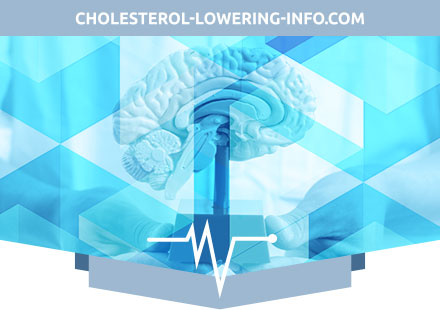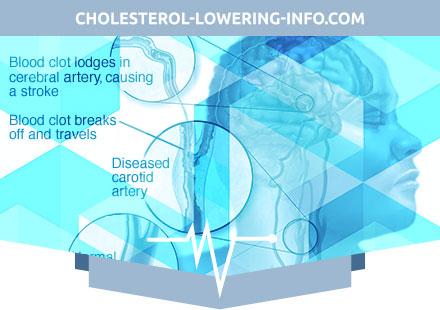Ischemic Attack
Stroke is a condition in which our brain cells are deprived of proper blood supply either due to a blockage or rupture in a brain artery. Stroke can affect brain functionality as well as can lead to further compilations. It is a serious medical condition which requires immediate treatment.
Brain stroke has different types, depending upon its cause, severity, and location. One of the types of brain stroke is Ischemic Attack. The details of the ischemic attack have been discussed in this article. The article covers all the causes, symptoms and precaution measures for the ischemic attack.
General Overview:
The ischemic attack is also known as the transient ischemic attack or mini-stroke is similar to Ischemic Stroke. Transient Ischemic Attack is the temporary reduction or interruption of blood supply to the brain cells and tissues. The transient ischemic attack can last for at least 5 minutes and goes away.
Due to the temporary reduction or interruption of the blood supply to our nervous system and brain, there are no permanent damages to the brain neither the symptoms of ischemic attack are longer lasting. But it does not mean that transient ischemic attack or mini-stroke is not harmful.

Mini stroke or ischemic attack is also one of the symptoms of Ischemic Stroke either thrombolytic stroke or embolic stroke. It indicates there is a clot or narrowed artery in the brain which is reducing the blood supply to our brain. A person who experiences an ischemic attack should seek proper treatment because it is a sign for severe stroke.
How is Transient Ischemic Attack Different from Ischemic Stroke?
A severe or sudden brain stroke is usually an Ischemic stroke that can be a result of the blockage in a brain artery. Ischemic stroke occurs when the brain cells and tissues are deprived of blood supply due to a blockage in a brain artery, which is either due to narrowing of the artery or presence of a clot, debris or plaque.
If the stroke is due to a clot in any of the brain artery, it is known as the thrombolytic ischemic stroke. On the other hand, if a blood clot is formed in a location other than a brain (usually a heart artery) and flows to the brain artery, the lot is called an embolus and the condition is known as embolic ischemic stroke.
Both the thrombolytic ischemic stroke and embolic ischemic stroke has permanent and serious effects on our nervous system and other body organs. It is a severe medical condition and requires immediate medical treatment. Any delay in the treatment may reduce the chances of cure and increase the chances of death.
On the other hand, Transient Ischemic Attack, which is also known as a mini-stroke or pre-stroke is caused by a temporary obstruction in blood supply. But the clot or debris is not permanent and moves away, allowing a normal supply of blood to brain tissues and cells.
Although the transient ischemic attack is a temporary situation, yet it could be a serious medical condition. Transient Ischemic Attack is a sign that a clot or debris is present inside your arteries and is flowing through the blood or there is partial blockage inside your brain arteries. Ischemic stroke can occur more than once and therefore it requires proper treatment.
The risk of full-blown severe brain stroke is greatly high in those persons who already have had a transient ischemic attack.
Symptoms of a Transient Ischemic Stroke:
Usually, the symptoms of a transient ischemic stroke are similar to the symptoms of a full-blown stroke. But because the transient ischemic attack is a temporary obstruction of blood to the brain, therefore, it is possible that you may not experience any sign and symptoms of a stroke.
The possible warning signs of a Transient Ischemic Attack can be:
- Difficulty in Speaking: Just like any other stroke, the transient ischemic attack may also cause difficulty in speaking. A person who is likely to have a transient ischemic stroke may speak slurry or gibberish words.
- The trouble with Understanding Speech and Language: if someone is experiencing a Transient Ischemic Attack, he or she would find it difficult to understand the words and language of other persons.
- Lack of Clarity: A person having a mini-stroke or transient ischemic stroke can have confusion regarding the events happening at that time.
- Difficulty in Thinking: At the time of mini-stroke a person did not think properly.
- Loss of Muscle Movement or Paralysis: Another symptom and sign of transient ischemic attack or mini-stroke may be paralysis or loss of muscle movement on one side of the body. The paralysis is common in arms, face or leg.
- Numbness in Upper Body Parts: You may feel intense numbness in the upper parts of your body such as arm, face or leg during a transient ischemic attack.
- Blurred Vision: A transient ischemic attack or mini-stroke can cause double vision, blurred vision or complete blackening of vision.
- The trouble with Walking: Due to a stroke a person might stumble on feet, experience loss of coordination and loss of balance during a stroke.
- A headache: Although a transient ischemic attack is a temporary condition it, might cause a severe headache for as long as it lasts.
- Nausea and Other Symptoms: a headache is usually followed by intense nausea, vomiting, dizziness, and weakness or altered consciousness.
If you observe any of the signs and symptoms in yourself or someone else around, then it is possible that you are having a transient ischemic stroke. Once you have the signs and symptoms you need to get medical treatment immediately.
How to Know That You Are Having an Ischemic Attack?
If you are not sure whether you or someone else are having a stroke or not then check for the following symptoms and signs. These factors are one of the most authentic ways to detect whether you are having a transient ischemic attack or not.
- Look to the Face – Smile or ask the other person to smile, if the one side of the face droops it’s a clear sign of a mini-stroke.
- Lift the Arms – Raise both of your arms above your head and if one of the arms is drifting downward or you are unable to lift one arm it means you are having a stroke.
- Speech – Repeat the same and simple phrases. If the speech is slurred or words have grubbed or you are speaking strange words go for medical help.
- Time – If the signs are lasting longer it’s a clear sign of a transient or mini ischemic attack and you need to call for medical help immediately.
Causes of Transient Ischemic Attack
Both the causes and symptoms of a Transient Ischemic Attack are same as the signs and cause of a normal full-blown stroke. Generally, a Transient Ischemic Attack is a result of partial blockage or narrowing of a brain artery. A mini-stroke is caused by a temporary blockage or obstruction of the blood vessel which is caused by the presence of blood clot or plaque buildup.

The causes of Transient Ischemic Attack are both medical risk factors and lifestyle factors. In addition to these two risk factors, there are certain other factors which increase the risk of transient ischemic stroke or mini-stroke.
Medical Risk Factors:
Mostly a mini-stroke or transient ischemic attack is associated with other health or medical problems and diseases. The medical risk actors of a mini-stroke are:
- Hypertension - High blood pressure or stress
- Excessive use of blood thinners or anticoagulants
- Aneurysms –the presence of weak spots in blood vessels
- Arteriovenous malformation – abnormal tangling within thin-walled vessels.
- High blood cholesterol
- Diabetes – High blood sugar level
- Obstructive sleep apnea
- Personal or family history of a stroke or transient ischemic stroke/ mini-stroke.
- Cardiovascular diseases – Cardiac arrest, heart failure, heart infection etc.
- Artery Diseases – Atherosclerosis.
Risk Factors Based on Lifestyle:
Our lifestyle also impacts the risk of transient ischemic attack greatly. Our healthy or unhealthy habits can either prevent the ischemic attack or increases its risk. These includes:
- Being overweight or obese.
- Excessive smoking or exposure to secondhand smoke.
- Improper and unhealthy diet.
- Physical inactivity or lack of exercise.
- Heavy or binge drinking.
- Use of illicit drugs such as cocaine and methamphetamines.
Other Risk Factors of Transient Ischemic Attack:
In addition to the above-mentioned factors, there are some other causes and risk factors of Ischemic attack or mini-stroke, such as:
- Age: People at the age of 55 or more are more likely to have brain strokes as compared to the young ones. Hence age is one of the leading cause of brain strokes.
- Gender: Young men are more likely to have strokes as compared to the women but older women have a high ratio of strokes in comparison with older men. In most cases, the death of old women is caused by stroke.
- Hormones: Excessive use of artificial hormones such as estrogen or birth control pills can also cause brain stroke. Also, the naturally elevated levels of estrogen during pregnancy or childbirth can also cause brain stroke.
Medication for Treating Transient Ischemic Attack:
A Transient Ischemic Attack is a sign of a partial blockage in the brain arteries due to form a plaque or blood clot. Hence it is possible to treat Ischemic attack without surgery. Transient Ischemic attack can be treated with two different kinds of drugs which are:
- Anti-platelet Drugs: These medications are used to prevent the inhibition of a thrombus and its formation inside the blood vessels. The drugs work on the thrombus and break it & remove it.
- Anti-coagulant Drugs: These drugs prevent the coagulation of blood cells and thus prevent the formation of blood clots in the brain arteries.
 AU
AU UK
UK CA
CA DE
DE FR
FR IT
IT ES
ES


